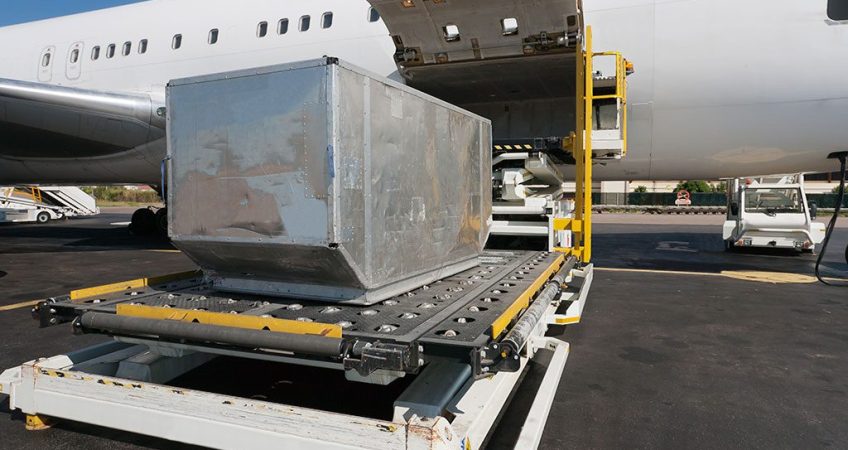
In today’s interconnected world, businesses rely heavily on the efficient movement of goods across international borders. Whether it’s raw materials, finished products, or specialized equipment, the logistics behind global trade can be incredibly complex. This is where freight forwarders step in, playing a crucial role in streamlining transportation, ensuring compliance, and optimizing supply chain operations.
What is a Freight Forwarder?
A freight forwarder is a specialized logistics service provider that arranges and coordinates the shipment of goods on behalf of businesses and individuals. They act as intermediaries between shippers and transportation services, facilitating smooth cargo movement across different modes, including air, sea, rail, and road. Unlike carriers, freight forwarders do not physically move the goods but instead leverage their expertise, networks, and resources to ensure efficient and cost-effective transportation.
Key Responsibilities of a Freight Forwarder
Freight forwarders handle various aspects of shipping and logistics to provide seamless services to their clients. Their responsibilities typically include:
- Shipment Planning & Coordination
Freight forwarders analyze shipping requirements and determine the best routes, carriers, and modes of transport to optimize cost and efficiency. They ensure that the cargo reaches its destination on time with minimal disruptions. - Customs Clearance & Compliance
Navigating international trade regulations and customs procedures can be challenging. Freight forwarders handle documentation, duties, and taxes while ensuring compliance with import/export laws. - Freight Consolidation
Small shipments can be consolidated with other consignments to reduce costs and maximize space utilization. This is particularly beneficial for businesses looking to save on logistics expenses. - Insurance & Risk Management
Freight forwarders offer cargo insurance services to protect shipments against damage, loss, or theft during transit. They assess risks and recommend suitable insurance coverage to safeguard businesses. - Warehousing & Distribution
Some freight forwarders provide storage solutions, ensuring goods are safely housed before final delivery. They also coordinate last-mile distribution to ensure timely deliveries. - Tracking & Documentation
Real-time tracking and documentation services help businesses monitor their shipments, providing transparency and ensuring all paperwork is accurately maintained.
Types of Freight Forwarding Services
Freight forwarders offer a range of services tailored to different industry needs. The primary types include:
- Air Freight Forwarding: Fast and reliable shipping for time-sensitive goods, such as pharmaceuticals and high-value electronics.
- Ocean Freight Forwarding: Ideal for bulk cargo and international trade, with options for Full Container Load (FCL) and Less than Container Load (LCL) shipments.
- Road Freight Forwarding: Used for domestic and cross-border transportation of goods via trucks and trailers.
- Rail Freight Forwarding: A cost-effective and eco-friendly alternative for transporting goods over long distances.
Why Businesses Need Freight Forwarders
Using a freight forwarder provides several advantages, making logistics operations smoother and more efficient:
- Expertise in Logistics & Regulations: Freight forwarders possess in-depth knowledge of shipping routes, regulations, and international trade laws, reducing the risk of customs delays and compliance issues.
- Cost Savings: By leveraging their network of carriers and consolidating shipments, freight forwarders help businesses save on transportation costs.
- Time Efficiency: Handling logistics can be time-consuming, but freight forwarders manage all aspects of shipping, allowing businesses to focus on core operations.
- Scalability & Flexibility: Freight forwarders offer customized solutions, whether a business is shipping a small consignment or large cargo, adapting to varying demands.
Choosing the Right Freight Forwarder
Selecting a reliable freight forwarder is crucial for smooth logistics operations. Here are some key factors to consider:
- Experience & Reputation: Look for a company with a proven track record in handling similar shipments.
- Global Network: A freight forwarder with a strong international network ensures smooth cross-border operations.
- Customer Support: Efficient communication and transparency in handling queries and concerns are essential.
- Technology & Tracking Capabilities: Opt for forwarders that offer real-time tracking and digital solutions for better visibility.
The Future of Freight Forwarding
The logistics industry is evolving with advancements in technology. Freight forwarders are increasingly adopting automation, blockchain, artificial intelligence (AI), and the Internet of Things (IoT) to enhance efficiency, improve transparency, and reduce operational costs. Sustainability is also becoming a major focus, with companies implementing eco-friendly shipping solutions and reducing carbon footprints.
Conclusion
Freight forwarders play a vital role in global trade by ensuring the seamless movement of goods across borders. Their expertise in logistics, customs regulations, and transportation makes them invaluable partners for businesses looking to expand their operations. As technology continues to transform the logistics sector, freight forwarders will remain a cornerstone of efficient and cost-effective supply chain management.
For businesses looking to optimize their shipping operations, partnering with a reputable freight forwarder can be the key to smooth, hassle-free logistics. Whether you are a small business or a multinational corporation, leveraging their services can help you navigate the complexities of international trade with confidence.
